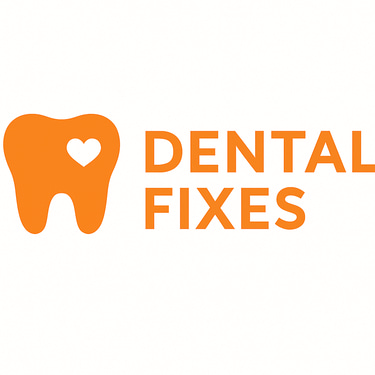The Real Cost of Full Mouth Dental Implants: What Patients Should Know Before Deciding
SURGERYCOSMETICSFEATURED


The Real Cost of Full Mouth Dental Implants: What Patients Should Know Before Deciding
“Wait… full mouth implants cost how much?!”
If you’ve ever Googled the price of dental implants, chances are your jaw dropped—before the new teeth even got put in. The truth is, full mouth dental implants can be a big financial investment, but they’re also life-changing. For many patients, the cost isn’t just about the dollars and cents; it’s about regaining confidence, comfort, and the ability to live fully again.
In this post, we’ll break down what implants really cost, why the price can vary so much, and how to make smart choices that keep both your smile and your wallet happy.
Why This Matters to Your Everyday Life
Your teeth aren’t just about looks. They affect how you eat, speak, smile, and even how healthy your entire body feels. If you’ve been struggling with missing teeth or uncomfortable dentures, you already know how much it impacts your daily routine.
Imagine being able to:
Bite into an apple without fear of your teeth slipping.
Laugh out loud without worrying about gaps or dentures moving.
Eat steak, corn on the cob, or crusty bread without discomfort.
That’s what full mouth dental implants can offer. They’re designed to feel and function like natural teeth—and for many patients, that’s priceless. But the financial cost is real, and understanding it upfront helps you plan better.
So, What Do Full Mouth Dental Implants Cost?
Here’s the honest breakdown in the U.S. (these are averages; your actual cost will depend on your dentist and location):
Full mouth implants (all teeth replaced individually): $40,000–$60,000 (sometimes more).
All-on-4 implants (4 implants support a full arch): $20,000–$35,000 per arch ($40,000–$70,000 for both upper and lower).
Implant-supported dentures (removable but anchored by implants): $12,000–$20,000 per arch.
Traditional dentures (for comparison): $1,000–$3,000 total—but these often need replacement every 5–7 years.
Why the wide range? Factors include:
Geography: Dental care in New York City or Los Angeles will cost more than in smaller towns.
Materials used: Zirconia vs. acrylic prosthetics, titanium vs. ceramic implants.
Complexity: Bone grafts, sinus lifts, or extractions can increase the price.
Experience: Highly skilled implant specialists may charge more—but often deliver better long-term results.
Practical Tips to Keep Costs in Check
While the numbers above may sound overwhelming, the good news is there are ways to make implants more affordable. Here are some practical steps patients often overlook:
1. Ask About “All-on-4” or “All-on-6” Options
Instead of replacing every single tooth with an implant, these techniques use 4 to 6 strategically placed implants per arch to hold an entire set of teeth. They’re stable, effective, and much more affordable than a full set of individual implants.
2. Look Into Dental Schools
Dental schools often offer implant procedures at a reduced cost because students are performing the work under the supervision of experienced professionals. It may take more time, but it can save you thousands.
3. Inquire About Financing Plans
Many dental offices work with financing companies like CareCredit to let you pay in monthly installments instead of one lump sum. This makes the cost easier to manage without delaying treatment.
4. Check Insurance Carefully
Most dental insurance plans don’t fully cover implants, but some may help with parts of the procedure—such as extractions, crowns, or dentures. Always ask your insurance provider for specifics.
5. Compare Options, But Don’t Shop on Price Alone
Implants are an investment in your health. Choosing the cheapest option may save money upfront but could cost more later if complications arise. Always consider the dentist’s experience, the materials used, and patient reviews.
Myth-Busting: “Implants Are Just About Vanity”
One of the biggest myths about dental implants is that they’re just for people who want a Hollywood smile. The truth is, implants are about much more than appearance.
When you lose teeth, the jawbone underneath begins to shrink. This not only affects your smile but also changes the shape of your face—leading to a sunken, older appearance. Implants act like artificial tooth roots, keeping your jawbone strong and your facial structure intact.
So while they do make your smile look amazing, the medical benefits are just as important.
A Fun Fact to Make You Smile
Believe it or not, dental implants aren’t a modern invention. Archaeologists have found evidence of dental implants going back thousands of years. Ancient Mayan skulls from around 600 A.D. show seashell fragments and carved stones used to replace missing teeth. Even more surprising—some of these early “implants” actually fused with the jawbone!
Thankfully, today’s titanium implants are a little more sophisticated (and far less likely to involve seashells).
Final Thoughts: Is It Worth the Cost?
Full mouth dental implants aren’t cheap—but neither is living with missing or failing teeth. While the price tag can be daunting, many patients find the long-term benefits far outweigh the costs. Implants:
Last decades (sometimes a lifetime) with proper care.
Improve overall health by allowing you to eat a wider variety of foods.
Boost confidence in both personal and professional life.
Prevent bone loss and premature aging of the face.
Think of implants as an investment—not just in your smile, but in your ability to live life without compromise.
If you’re considering full mouth dental implants, start by scheduling a consultation with a trusted provider. Ask questions, explore financing options, and weigh the long-term value. Because at the end of the day, your smile isn’t just about looks—it’s about living fully and fearlessly.
